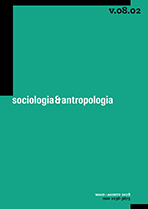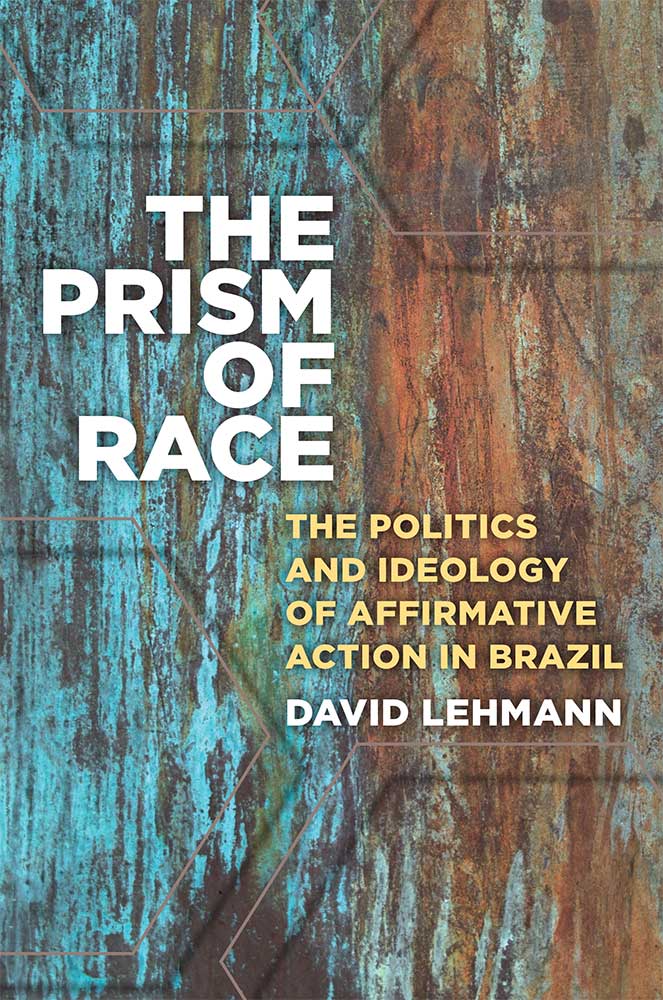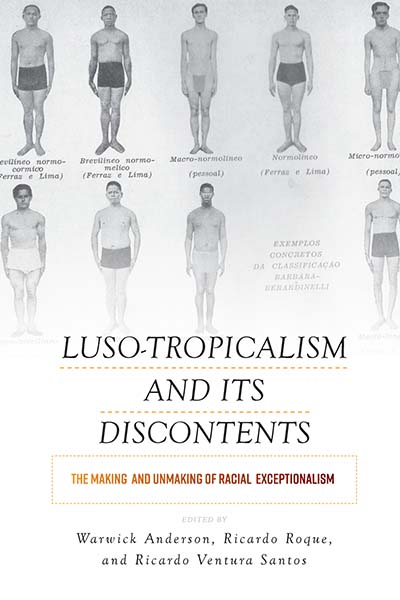Comparing Ideologies of Racial Mixing in Latin America: Brazil and Mexico
Sociologia & Antropologia
Volume 8, Number 2: (May/August 2018)
pages 427-456
DOI: 10.1590/2238-38752017v824
Graziella Moraes Silva, Assistant Professor of Anthropology and Sociology
Graduate Institute of International and Development Studies (IHEID)
Geneva, Switzerland; Federal University of Rio de Janeiro
Emiko Saldivar, Continuing Lecturer
Department of Anthropology
University of California, Santa Barbara

By the end of the twentieth century, with the rise of multicultural discourses and identity politics, Latin American ideologies of racial mixture had become increasingly denounced as myths that conceal (and thus support) the reproduction of racial inequalities. These studies have largely been guided by comparisons between countries with widespread racial mixing (usually Brazil, Mexico or Colombia) and countries in which it was less encouraged and visible (most commonly, the USA). In this paper we move the focus to the diverse ways in which racial mixture currently impacts racial formations in the Latin America, looking initially at Brazil and Mexico, two of the largest countries in the region, and also those with the largest Afro-descendent and indigenous populations in the continent. For comparison, we analyze survey data from the PERLA project.
INTRODUCTION
Academic interpretations of racial mixing in Latin America, particularly in the North American literature, underwent a radical change during the second half of the twentieth century.1 After World War II, ‘Latin American miscegenation’ was seen as an alternative to ethnic and racial exclusions that had triggered the Jewish holocaust and had been a source of violent conflicts in the United States during the Jim Crow era and in South African apartheid during the 1950s and 1960s. But by the end of the twentieth century, with the rise of multicultural discourses and identity politics, Latin American ideologies of racial mixture became increasingly denounced as myths that conceal (and thus support) the reproduction of racial inequalities (e.g. De la Cadena, 2000; Hanchard, 1994).
These studies have largely been guided by comparisons between countries with widespread racial mixing (usually Brazil, Mexico or Colombia) and countries in which it was less encouraged and visible (most commonly, the USA). Such comparisons have largely contributed to a better understanding of miscegenation as an ideology that allowed racial inequalities to remain more invisible in the Latin American context throughout most of the twentieth century (e.g. Telles, 2003 and Knight, 1990). More recently, a number of authors have also stressed the influence of Latin American ideas of miscegenation in the transformation of racial inequalities in the United States, a phenomenon that has been labeled the Latin Americanization of American race relations (e.g. Bonilla-Silva, 2004). Exploring this comparison, these studies have usually treated racial mixture as a coherent ideology shared across the region.
In this paper we propose to shift the focus onto the diverse ways in which racial mixture currently impacts racial formations in the region. Empirically, we turn our gaze to Brazil and Mexico, two of the largest countries in Latin America, and also those with the largest Afro-descendant and indigenous populations in the continent. As in most countries in the region, ideologies of racial mixture were instrumental to the construction of their national identity: first as a strategy for whitening (Stepan, 1991) and later as tools for assimilation (e.g. Freyre, 1946, and Gamio, 2010). Today, ideas of racial mixing remain central in both Brazil and Mexico, but racial politics are significantly different. Brazil has increasingly seen black (pretos) and brown (pardos) people join forces to address racial inequalities, arguing that mixed pardos are in similar conditions to blacks. Mexico, by contrast, still advocates the benefits of racial mixture, avoiding the discussion of race and racial inequalities on the grounds that most of the population is mixed.
Our paper unfolds as follows: first we explore the role of racial mixing in the nation building processes in Brazil and Mexico. We emphasize the similarities in the ways in which this idea has been articulated in the two countries historically, but also the important differences, something often overlooked in the literature. Next, turning to PERLA data (presented in our methods section), we discuss how these differences have created distinct perceptions of racial identification in Brazil and Mexico, focusing on three dimensions: (1) the relationship between racial identification and skin color, (2) the relationship between racial mixture and cultural differences, and (3) the impact of racial mixture on ethnoracial inequalities.2 We conclude by stressing the need for more comparative studies between Latin American countries in order to better understand the diversity of mestizaje projects and their differential impacts in the region…
Read the entire article here.






